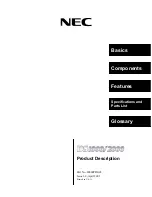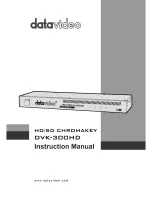
Training Status Levels
Training status shows you how your training affects your fitness level and performance. Your training status is
based on changes to your VO2 max., acute load, and HRV status over an extended time period. You can use
your training status to help plan future training and continue improving your fitness level.
No Status: The device needs you to record multiple activities over two weeks to determine your training status.
Detraining: You have a break in your training routine or you are training much less than usual for a week
or more. Detraining means that you are unable to maintain your fitness level. You can try increasing your
training load to see improvement.
Recovery: Your lighter training load is allowing your body to recover, which is essential during extended periods
of hard training. You can return to a higher training load when you feel ready.
Maintaining: Your current training load is enough to maintain your fitness level. To see improvement, try adding
more variety to your workouts or increasing your training volume.
Productive: Your current training load is moving your fitness level and performance in the right direction. You
should plan recovery periods into your training to maintain your fitness level.
Peaking: You are in ideal race condition. Your recently reduced training load is allowing your body to recover
and fully compensate for earlier training. You should plan ahead, since this peak state can only be maintained
for a short time.
Overreaching: Your training load is very high and counterproductive. Your body needs a rest. You should give
yourself time to recover by adding lighter training to your schedule.
Unproductive: Your training load is at a good level, but your fitness is decreasing. Try focusing on rest, nutrition,
and stress management.
Strained: There is imbalance between your recovery and training load. It is a normal result after a hard training
or major event. Your body may be struggling to recover, so you should pay attention to your overall health.
Tips for Getting Your Training Status
The training status feature depends on updated assessments of your fitness level, including at least one VO2
max. measurement per week. Your VO2 max. estimate is updated after both indoor and outdoor rides with
power during which your heart rate reached at least 70% of your maximum heart rate for several minutes.
To get the most out of the training status feature, you can try these tips.
• At least one time per week, ride with a power meter, and reach a heart rate higher than 70% of your maximum
heart rate for at least 10 minutes.
After using the device for one week, your training status should be available.
• Record all of your fitness activities on your primary training device, allowing your device to learn about your
performance (
Syncing Activities and Performance Measurements, page 22
).
About VO2 Max. Estimates
VO2 max. is the maximum volume of oxygen (in milliliters) you can consume per minute per kilogram of body
weight at your maximum performance. In simple terms, VO2 max. is an indication of athletic performance and
should increase as your level of fitness improves. VO2 max. estimates are provided and supported by Firstbeat.
You can use your Garmin device paired with a compatible heart rate monitor and power meter to display your
cycling VO2 max. estimate.
My Stats
13
Содержание EDGE 540
Страница 1: ...EDGE 540 Owner sManual...
Страница 89: ......
Страница 90: ...support garmin com GUID 17DE938E 466A 4746 BDBF 7A6FC1B3A32C v1 April 2023...
















































